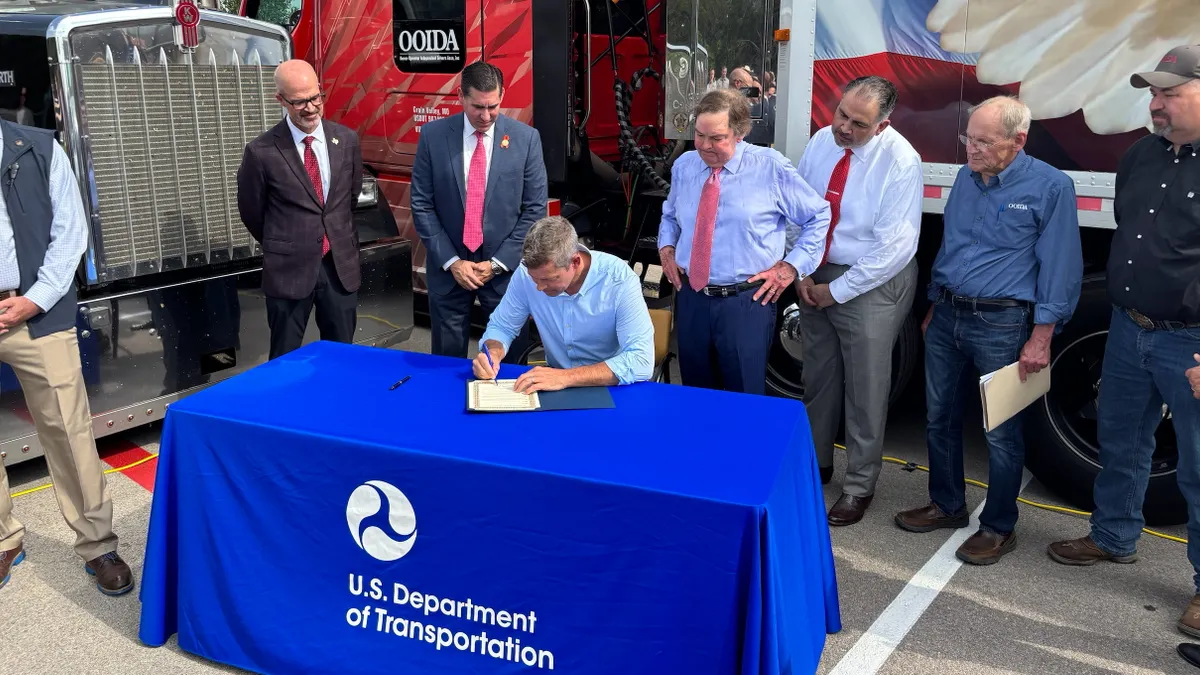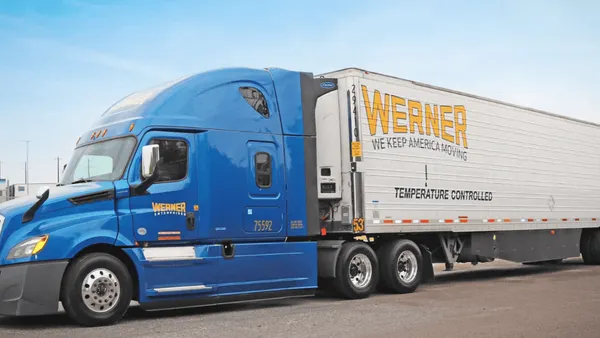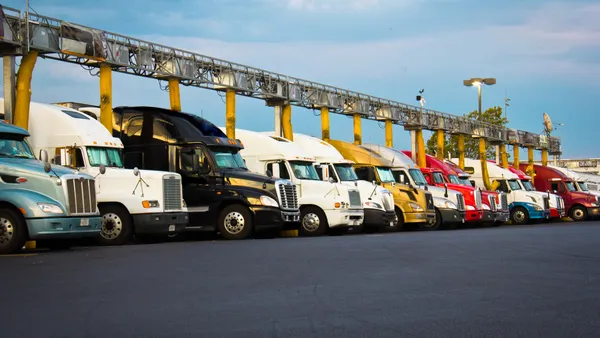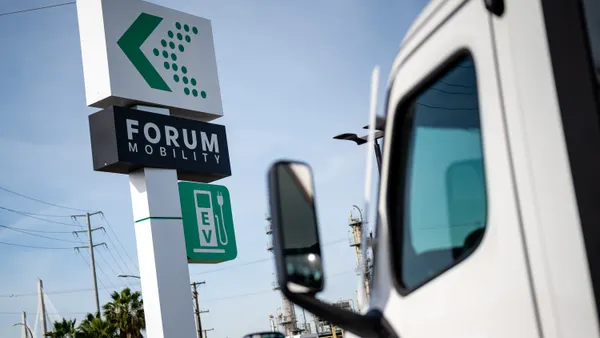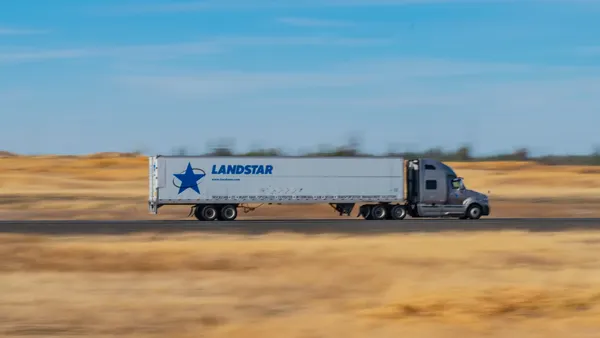Dive Brief:
- Schneider National is focused on winning more intermodal customers as the carrier sees more shippers shy away from rail due to service challenges.
- The carrier has seen "too much conversion back to over the road," CEO Mark Rourke said on an April 28 Q1 earnings call. Earnings from its logistics segment surpassed intermodal for the first time this past quarter.
- Schneider is identifying ways to differentiate itself within the intermodal market as it prepares to switch its primary rail provider to Union Pacific in January 2023. The carrier wants to double the size of its intermodal operation by 2030.
Dive Insight:
Schneider's intermodal order count in the quarter grew just 1% YoY even as the carrier boosted its container count by 2,200, or 26% compared to the prior year. Revenue per order within Schneider's intermodal business has deteriorated since Q4, dropping to $2,679 from $2,772.
The carrier has seen some intermodal growth in the East, but hauls are typically shorter and bring lower revenue per order. Rourke said Schneider's investment in intermodal containers will eventually be "translated into order volume growth as rail fluidity and labor conditions improve."
Railroads have struggled with congestion amid higher shipper volumes in addition to labor and power constraints. Competitor J.B. Hunt said earlier in April that rail service challenges have led to a boost in demand for trucking services, and the company's truckload segment saw its best quarterly performance since 2005.
Still, Schneider remains confident it can meet its goal to double its intermodal business by 2030 as more shippers are expected to leverage the service in a bid to lower emissions. The carrier plans to differentiate itself within intermodal with an "asset-based execution model of owned container, owned chassis and company driver dray," Rourke said.
Schneider is preparing to transition its primary rail provider from BNSF to Union Pacific next year, and has been working with the railroad to "to develop a robust plan" to build up intermodal, Rourke said. The trucking company had moved away from BNSF in part because one of Schneider's competitors "has a preferential contractual arrangement with BNSF, which limits the market share and relative profitability of the services we provide," according to a 10-K.
Rourke said Schneider's transition to Union Pacific has been "on track," and the carrier remains "highly confident in our collective execution capability."
"We've put a lot of effort and a lot of resources internally, as well has Union Pacific," said Rourke. "And, increasingly together, [we will] go out and demonstrate to our customer community how we're going to have a great transition and that we're going to sell into that and how that's going to be a value."





